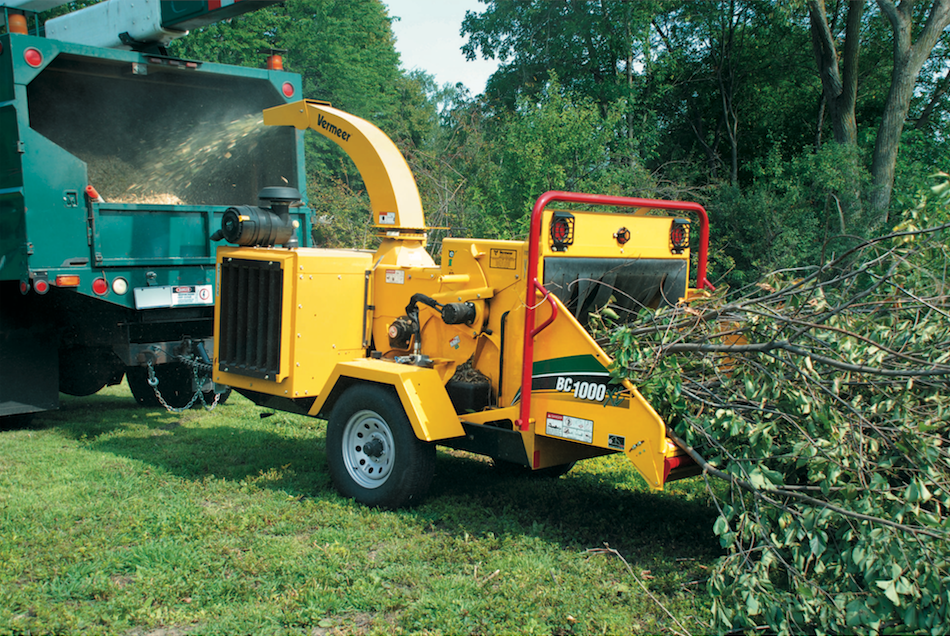Knowing where your tree care business stands today and where it can go in the future often depends on having a good business plan that accounts for expenses, revenue and the things it takes to help generate that revenue, such as personnel and machinery.
Many tree care businesses – especially those smaller in size – don’t have the types of business plans necessary to paint that clear picture of the current status of their operations and what they can do to evolve and grow down the road, according to Bob Rouse, chief program officer for the Tree Care Industry Association (TCIA).
“Most tree care company owners say they just don’t have the time to create one, that their business plan is ‘in their head’ or that our industry just moves too quickly to invest the time in writing down their plan,” Rouse said. “Although it’s easily overlooked, tree care companies shouldn’t get started without a business plan. After all, would a builder begin construction without a blueprint?”
The importance of a business plan
What’s at stake for tree care company owners who don’t have a well-thought-out business plan? A lot, Rouse said. However, the process typically isn’t one you have to take on by yourself. The tree care industry is one steeped in collaboration, and leveraging assistance from sources like other tree care business owners can be a big help in starting the process of building a business plan.
“Most tree companies fail because the owner doesn’t know how to manage a business. Following a business plan helps you stay focused on providing services that play to your company’s strengths and avoid being distracted by services and clients that do not fit your business model,” Rouse said. “You do not have to go it alone; there are a lot of resources available to help small business owners, including free resources available from federal, state and in some instances, local government-supported programs. For example, the Small Business Administration runs the Service Corp of Retired Executives (SCORE) which specializes in helping small business with business planning, financing and marketing. We suggest taking advantage of these experts. Why reinvent the wheel?”
Building your plan
“Building a business plan is a purpose-driven exercise. It’s important to account for basic principles initially, then build upon those principles in a way that serves a longer-term vision for your company,” added TCIA director of development Amy Tetreault.
“A business plan should serve three basic purposes: communication, management and planning. Similarly, it should be simple, specific, realistic and complete,” Tetreault said. “A solid business plan will help you identify roadblocks and obstacles so that you can avoid them and instead establish alternatives. Additionally, it’s much easier to correct mistakes when writing a plan rather than operating your business day-to-day.”
A common obstacle in building a business plan is balancing the necessary short-term objectives of managing a business with planning for the long term. One way to avoid falling out of this balance is to revisit it regularly to help ensure you’re following your business objectives, Rouse says.
“Plans tend to have a short-term focus; some may write a plan that only addresses the next two years. This means you should pick up and review your plan more frequently to make sure you are still following it,” he said. “Most current plans address bottlenecks for business growth, like the lack of qualified employees. Your business plan can address how you plan to recruit and retain employees to create a business advantage. The process of planning can be just as beneficial as the result itself.”
Industry Support
“Even the best business plan in the world can be ineffective unless you follow it closely. That’s the most common mistake for busy tree care business owners,” Tetreault said, reiterating the importance of reviewing the plan often to help ensure it’s meeting your initial objectives in building it. “And, don’t be afraid to make changes if it is falling short in any area. Finally, industry resources such as those from TCIA can help in not just building the plan initially, but also help ensure it is sustainable and purpose-driven over the long term.”
“The most important thing is to stop making excuses and to start building your plan now. If you already have a plan, now is a great time to review and update it,” Tetreault said. “TCIA has a number of tools that can help. Our business management guide walks you through virtually every step of planning your business. There are instructions, templates, reference materials and more.”
Most notably, TCIA offers an accreditation for tree care businesses. That accreditation provides access to valuable resources that can help in building and sustaining strong business plans.
“The accreditation program gives tree care companies the tools to strengthen the foundation of their businesses and construct a successful future,” Rouse said. “Accreditation will help you build documented safety and training programs, establish policies to help employees perform better, evaluate your company against industry standards and develop customer satisfaction practices.”
TCIA is holding an executive arborist workshop later this year to help tree care company owners manage the business aspects of their work, including building and sustaining business plans. Learn more about the event here.
To view more business building-tips on the Tree care, rental and landscape blog, click here.
This article contains third-party observations, advice or experiences that do not necessarily reflect the opinions of Vermeer Corporation, its affiliates or its dealers. Vermeer, Vermeer Logo and Equipped to Do More are trademarks of Vermeer Corporation in the U.S. and/or other countries. © 2018 Vermeer Corporation. All Rights Reserved.
